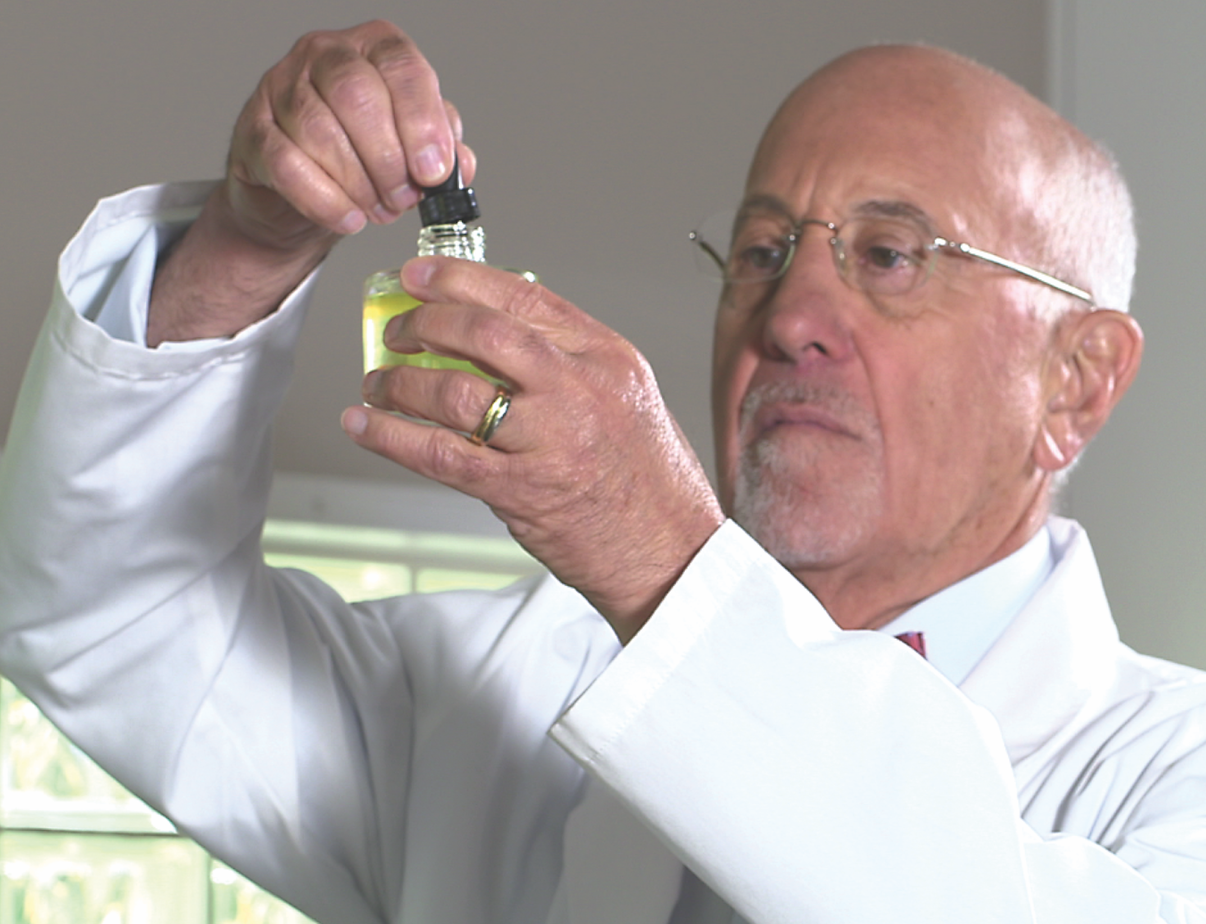Dr. Marvin Hausman is Chairman of Nova Mentis’ Scientific Advisory Board and is leading their research and development efforts in medicinal psychedelics.
Dr. Hausman is an immunologist and board-certified urological surgeon with more than 30 years of drug research and development experience with various pharmaceutical companies, including Bristol-Myers International, Mead-Johnson Pharmaceutical Co., E.R. Squibb, Medco Research and Axonyx.
He has years of experience delving into how psychedelics affect the gut microbiome, how psilocybin may be the key to solving autism and why mushrooms are beneficial to our overall health. Below is our interview with Dr. Hausman on research into psilocybin.
Q: Welcome Dr. Hausman, it’s a pleasure to be with you today. I recently saw you speak at the Scientific Microdose conference where you spoke about psilocybin, the microbiome and autism. Let’s start with this. How does the microbiome affect our overall health?
Answer: That’s an excellent question. I want to start by saying that if you look at an average person, someone standing in front of you, that person is composed of a hundred trillion bacteria and only 31 trillion human cells. And a human is 70 per cent water; how do we hold together?
The microbiome plays a major part in the health of our bodily system. It’s the synergy between the human cell and the bacteria within our body. And it’s not just bacteria. There are viruses in our body as well as algae and prokaryotic cells.
When the health balance with the microbiome is disturbed, we become sick. An example of this is leaky gut syndrome where material in your intestine moves back into the body. And with it, it carries pathogenic bacteria, leading to irritable bowel syndrome, Crohn’s disease, ulcerative colitis, and even poor mental health.
I worked on a study with The Michael J. Fox Foundation, where we studied Parkinson’s disease in an animal model. Many scientists now think that Parkinson’s disease begins in the small intestine, perhaps related to dysfunction of the microbiome. We’re learning a lot more about the role of the bacteria in the microbiome and how it correlates to our overall health.
**Q: You’re studying how psilocybin may help children with autism. What is the connection between psilocybin, autism, and the microbiome? **
Answer: This is a broad question, with a lot of different aspects to cover. The problem is that autism is a devastating disease that impacts our society, and we don’t have any good solutions.
At this moment, the causation of autism is not well-known. Is this a developmental problem, it genetic? We also generalize the disease itself and throw everything into one basket because we don’t understand the disorder well enough.
I’m predicting that in the next 10 years, you’re going to have 10 to 20 distinct autistic sub disorders. And they’re going to be treated differently. We know the dopamine system is part of the problem and also the serotonin system.
Serotonin is a neurotransmitter and its levels have been found to be elevated in autistic individuals. 90 per cent of serotonin is made in the small intestine, and the bone marrow. Only 10 per cent is made within the brain! So, we are focusing on studying the role of serotonin in various parts of the body.
We do know that psilocybin is a serotonin agonist. This means that it binds the serotonin receptors and produces a physiologic effect. We’re looking at using our psilocybin to correct serotonin problems.
Is psilocybin the right thing to use? I think so, but I also think we have questions, as Plato said, "We never know the answer. We only approach the answer." Another fact to consider is that treatment with antibiotics has the potential to improve autistic symptoms.
Q: When treating children autism with psilocybin, how much is appropriate? Is this ongoing treatment, or is it a one-time treatment?
Answer: The jury is still out on that answer. It could be one-time. It could be repetitive. Is the dosing going to be a full dose or a microdose that is repeated? We still need to do more research to have those answers, but what we know seems promising.
When you sit on a chair, you have legs that hold the chair up. If we think of a stool with three legs, I’m looking at chronic disease and autism as a three-legged stool.
One leg is behavioral abnormalities. The other leg is inflammation which may play a causative role. The third leg of the stool is the microbiome; corrupted dysfunctional bacteria in the microbiome may lead to immune system disorders and an inflammatory reaction. A vicious unhealthy cascade reaction occurs among all 3 legs.
I think it’s the microbiome that is causing the problem with the immune system. An example of this is diabetes. Diabetes may be related to corrupted macrophages in the small intestine. Overeating and poor food choices leads to disruption of the microbiome and problems with macrophage function.
These dysfunctional macrophages produce cytokines, inflammatory molecules. The cytokines migrate to the liver and cause insulin resistance. The pancreas tries to overcome the insulin resistance by producing more insulin, but the liver cells do not respond. The pancreas cannot keep up and fails; the result is diabetes.
The same process may be happening in autism. We’re using new technology to study the microbiome and the inflammatory molecules called cytokines and compare that to autistic behavior. We believe we’re going to have an answer by the end of 2021.
Q: What’s are the benefits of consuming mushrooms and psilocybin
Answer: I’d love to talk about a phenomenon in France called the French Paradox. The French Paradox involved towns in Burgundy, France, where they found the people that were living there, lived longer than people in other nearby towns. They all had bad habits including consumption of lots of fatty foods, chronic smoking, etc. Why were they living longer?
One of the main governmental research institutions in France, started investigating and they found that the longer living people were drinking more burgundy grapes and they also found that there was a substance in the skin of the grapes, called resveratrol.
The scientists connected resveratrol to a person’s DNA. I know it’s a long answer to your question, but the DNA has a tail called the telomere. Every time cells divide you age because little snips fall off. It turns out the telomere determines how long you’re going to live.
What got me interested in mushrooms is that we found out that grapes had resveratrol but they also had high levels of another important antioxidant molecule, called Ergothioneine. Grapes cannot produce Ergothioneine. Only mushrooms in the ground can produce this compound and grapes absorb this compound as a nutrient. A German scientist approximately 10 years ago discovered a transport system for Ergothioneine.
That transport system is in every human cell or every mammalian cell. And it has only one function, to transport Ergothioneine into your white cells, red cells, and your stem cells. Mushrooms are very important because not only do they supply Ergothioneine, but they produce other important natural nutritional compounds, such as vitamin D.
Interestingly Health Canada has estimated that 16.1 per cent of the death rate in Canada is due to vitamin D deficiency.
Q: How does the entourage effect work with mushrooms? Is it the same as cannabis?
Answer: The entourage effect is a term that really refers back to cannabis but is relevant to mushrooms as well.
The term entourage effect means that the substances within cannabis work better together than individually. The whole is better than the parts. THC and the cannabinoids work together. More bioavailability and increased biologic action because of the entourage effect.
And I think that the entourage principle applies also to the fungal kingdom, not just cannabis. Cannabis and mushrooms grow in nature and are considered foods. Mushrooms are the largest food kingdom in the world. The entourage effect plays a role in many foods.






